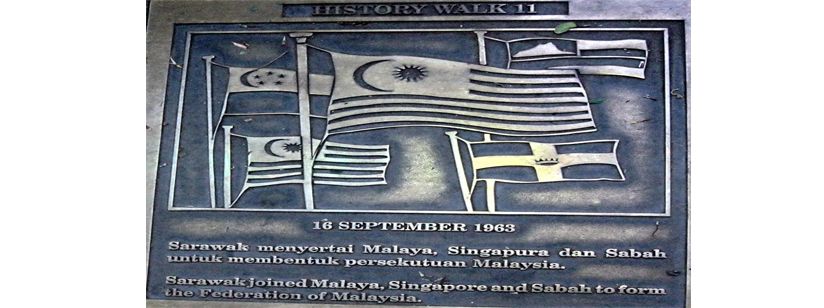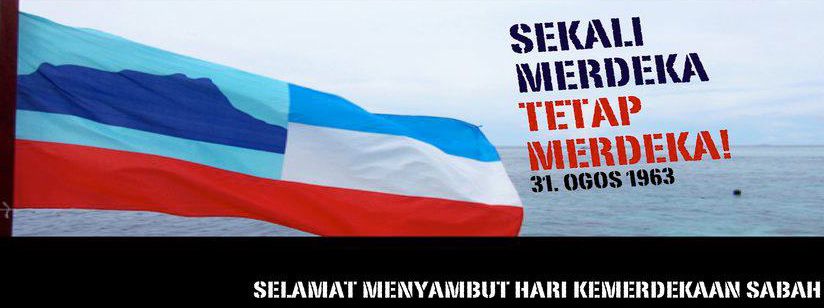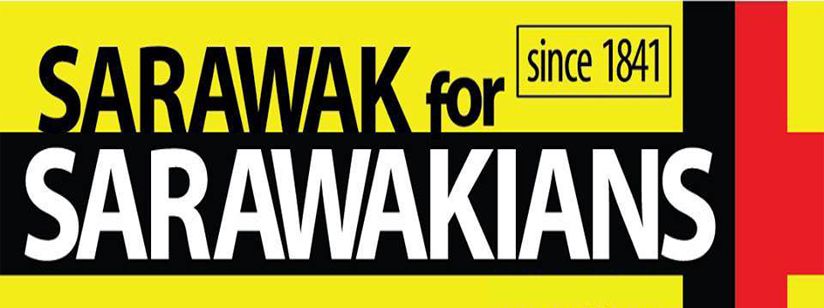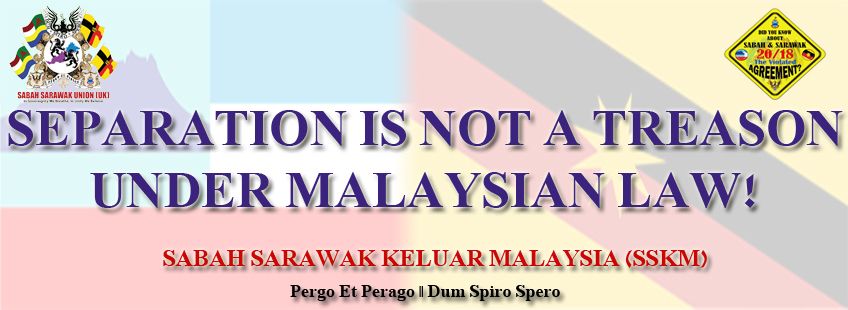Sunday, 8 November 2015
European Separatism: Scotland, Catalonia, and Growing Divisions in the EU
Despite the recent stability among Europe’s nation-states, the continent has for generations been incredibly divided. In addition to wars and centuries-long rivalries, the demographic composition of the states themselves has often been a source of conflict. As alliances, conquests, and marriages merged the territories of Europe’s many kingdoms over the centuries, minority groups were invariably caught in the middle, leading to internal conflicts and competing territorial claims that worsened existing conflicts among European states. Notable examples include Scotland, Catalonia, Flanders, Wallonia, Alsace-Lorraine, Northern Ireland, and the Basque Country.
Few European minorities, however, are more relevant today than the Scots and the Catalans, as they have launched high-profile independence movements that have captured global attention and threaten to permanently alter European geopolitics. These movements have significant backing among their people, whose existing regional governments provide an organized power structure capable of supporting and sustaining independence movements. Most importantly, these movements are having a large impact on two incredibly important European states: the United Kingdom and Spain. While the governing structure of the European Union (which requires unanimous consent for new members) would likely leave an independent Scotland or Catalonia looking from the outside in, thus harming the viability of these potential states, these movements should not be ignored. The rise of Scottish and Catalan nationalism and the resulting responses by their governments contains important lessons for EU member states and will be an important political issue in the EU for years to come as both peoples pursue political independence.
On September 18, 2014, Scotland voted 55%-45% to remain in the United Kingdom, ending, at least temporarily, the efforts of the Scottish Nationalist Party (SNP) to bring about an independent Scotland. During the referendum, Britain’s three major political parties formed a coalition that encouraged Scots to vote no and remain in the U.K. Among the issues used to convince Scots to vote no was the uncertainty of an independent Scotland being able to join the EU. This argument was effective for several reasons, and it demonstrates why the existence of the EU is a major obstacle for any independence movement within the EU. First, since the process for new states to join the Union requires the unanimous consent of all existing member states, the new state’s former state (or any other hostile member state) could easily derail its membership. This gives significant power to member states with separatist movements because they can both deny an independent state within their former territory EU membership and similarly deny membership to any other new, independent state within the Union in order to discourage a separatist movement within its own borders. Second, the denial of EU membership would, in itself, likely derail most independence movements. Losing the Euro, membership in European Economic Area (EEA), and the benefits of open borders would cause any newly independent European state to experience long-term economic challenges, as easy access to other European markets through the EEA’s free trade zone, open borders with other EU member states, and membership in the EU’s strong currency would be cut off upon gaining independence. While some of these challenges would not be applicable to Scotland or would apply in different ways, the prospect of these difficulties was a potent weapon deployed by the No-vote coalition in Scotland. As a result, it also strengthened the appeal of another common obstacle for independence movements: the promise of more regional powers by the central government.
A popular solution for dealing with separatist movements in recent times has been giving regions with a desire to seek independence more devolved powers over regional affairs. This can range from empowering the regional governor to creating an entirely separate regional parliament and government, as Britain has done in Scotland and as Spain has done in Catalonia. National governments also have a wide range of additional devolutionary tools at their disposal to give more powers to existing regional governments in order to create greater self-rule, including more spending and taxing powers and greater local say over how national laws apply to the region. This strategy is effective because it maintains national unity while satisfying the grievances of increasingly separatist regions that want more local control over their own affairs.
Separatists can use the prospect of independence as an excellent bargaining chip to seek greater regional autonomy. For instance, the Scottish referendum forced Westminster to offer Scotland more devolved powers, and, despite the referendum’s failure, the Scottish people strengthened their regional government by electing 56 members of the SNP to the British Parliament at the polls this past May. As a result, all but 3 MPs from Scotland are members of the SNP. If Parliament follows through on its promises, a strengthened Scottish regional government will satisfy many Scots who might otherwise have considered supporting independence. The appeal of gaining more regional powers is a potent obstacle for independence movements because many grievances can be remedied without independence. This, coupled with the prospect of being left out of the EU, makes independence an extremely hard sell. However, if central governments are unwilling to consider expanding regional powers and address the concerns of minority groups, they fuel separatist movements because independence (and the threat of it) becomes the only way to address regional concerns.
Despite important differences between the two regions, these lessons from Scotland are equally applicable to Catalonia’s quest to be independent from Spain. While Catalonia has a much larger share of its nation’s population than does Scotland and has an even more disproportionate amount of its nation’s economic activity, it would still face many of the same issues that have deterred Scottish independence. Though Catalonia could be categorized as Spain’s economic powerhouse, a departure from Spain and the EU could have dramatic economic consequences, making it difficult to trade with its former countrymen and France to the north and forcing many multinational corporations doing business in Barcelona to relocate in order to remain in the EU. This, combined with the loss of the Euro and membership in the open-border Schengen Area, would make independence a hard sell to Catalans, particularly if Spain decides to offer Catalonia more regional powers.
But Catalonia is also a perfect example of how central governments should not handle independence movements. Spain, in an effort to deny legitimacy to Catalan calls for independence, has ignored referendum attempts and refused to offer more regional powers beyond the current constitutional arrangement. By stifling overwhelming calls for a referendum and failing to offer Catalans an alternative to independence, the Spanish Government is only fueling the rise of Catalonian separatism and deepening the distrust between Catalans and the Spanish Government stemming from decades of difficulties during the Franco regime. When independence movements like those in Catalonia and Scotland are supported by legitimate historical claims, cultural identity, and growing popular support, national governments should take them seriously and have confidence that the desire for national unity will trump separatist aspirations in a popular vote. Failing to do so is undemocratic and will only strengthen the legitimacy of calls for independence. As Scotland’s referendum showed, putting the question to a vote can have positive results for national unity; the national government earned a democratic mandate to keep Scotland in the U.K.
Another interesting European example of separatism is the situation of Flanders and Wallonia in Belgium. The Dutch-speaking Flemish and French-speaking Walloons both have sought independence at various times in Belgium’s history since its independence from the Netherlands in 1830. However, as Flanders has grown in population and prospered economically, Flemish calls for independence have increased in recent years despite Flanders and Wallonia already having their own regional governments in Belgium’s federal system. Flanders now contains over 60% of Belgium’s population and three-quarters of its economic activity, meaning that Flanders effectively subsidizes the less-wealthy Wallonia region in terms of government programs. And as a result of mounting Flemish frustration, the pro-separatist New Flemish Alliance won a plurality in Belgium’s parliament in the 2014 elections. The existence of two incredibly distinct peoples in two different regions of the country makes Belgium’s situation very complex, since independence for Flanders would effectively mean the end of the Belgian state. The Belgian government thus faces an immense dilemma; it can neither allow an independence referendum, as a ‘yes’ vote would tear apart the Belgian nation, nor can it afford to ignore the New Flemish Alliance and its supporters.
Despite the difficulties that the EU creates for independence movements, they should not be ignored or written off. Scotland was less than half a million votes from leaving the United Kingdom after three centuries of unity with England, and the Tory government in London is now confronted with the problem of how to deal with the issues surrounding Scottish calls for more autonomy. How it does so will determine whether support for Scottish independence wanes or continues to grow. With the possible exception of Belgium, European nations dealing with independence movements should heed the lessons of Scotland, for the democratic principles that form the foundation of modern liberal democracies and the EU demand that the legitimate grievances of separatist citizens receive due consideration. As the past year has shown in Ukraine, separatism can be incredibly dangerous to the stability of nations and even lead to war in extreme circumstances when it is ignored or left unchecked. While devolution of powers to regional governments and independence referendums are often controversial and may have unintended consequences not discussed here, they often offer the best chance for keeping a state together despite the centrifugal forces pulling it apart from the inside.
Connor Pfeiffer is a sophomore from San Antonio, Texas, tentatively majoring in the History Department. He can be reached at connorp@princeton.edu.
Source: The Prince Tontory
DONALD STEPHENS' CRITICISMS OF "MALAYSIA PLAN"
HISTORIC VIEWS
STRAITS TIMES REPORT 1961
On 18 July 1961 a letter from former Sabah C.M. Donald Stephens was published in the Straits times criticizing Malaya's attempts to push their Malaysia Plan on the Borneo countries of Brunei, North Borneo (Sabah) and Sarawak.
His polite but firm comments inferred that Malaya was pushing its Malaysia Plan on the Borneo countries and smacked of "colonialism".
He made the followings points which are even more accurate and self evident after over 50 years for Sabah and Sarawak as vassal states. Brunei is the only country to gain real independence.
- Borneo people opposed Malaysia.
- Borneo countries should have independence first and consider "Malaysia" later.
- Borneo countries are to deal with Malaya on equal basis and not as vassals.
- "We do not want to join Malaya as colonies" (Britain colluded with Malaya to transfer Borneo sovereignty without independence)
- "Borneonize" civil service first and not have new "expatriates" come and take the top jobs.
- Malaysia Plan was against the Borneo nationalist aspirations for independence.
- Malaya should instead "urge" Brunei to help form a federation of the 3 Borneo territories first.
- The alternative idea of a confederation with Malaya could be considered after formation of the "Borneo Federation".
- He expressed concern about Malayan interference in the independence process with their plan to make Borneo states dependent on Malaya.
- He asked Malaya to stop interfering and forget about making Brunei North Borneo and Sarawak the 12th, 13th and 14th States of Malaya..
Source: Borneo Wiki
Sunday, November 08, 2015
Exposing the Truth
,
Fact
,
Federation of Malaysia 16 September 1963
,
History
,
North Borneo
,
Sabah
,
Sarawak
No comments
Garis Masa Kedudukan Negara Sabah dan Negara Sarawak Dahulu dan Kini...
Melihat kepada Garis Masa (Timeline) ini, mungkin anda dapat melihat secara umum tentang status sebenar negara Sabah dan negara Sarawak.
Pihak SSKM-SSU(UK) mengambil tahun 1946 sebagai permulaan kepada Garis Masa ini sebagai pendedahan sejarah tentang status kedudukan Negara Sabah dan Negara Sarawak adalah bertujuan untuk membuatkan anda semua faham. Ini juga kerana pada tahun tersebut jugalah negara Malaya wujud sebagai "Malayan Union" yang berstatus "Jajahan Makhota British ataupun Crown Colony of British" yang hanya mampu bertahan sehingga tahun 1948 sahaja sebelum ditukar status kepada "Tanah Naungan British ataupun Protectorate State of British".
Sebelum ini, semasa gambar Garis Masa ini dikongsikan, pihak kami mendapati seperti kurang perhatian diberikan. Apakah ia bermaksud bahawa rakyat negara Sabah dan rakyat negara Sarawak tidak mampu untuk memahami maksud didalam gambar ini? Jikalau itu yang menjadi penyebabnya, maka pihak kami akan berikan penerangan secara ringkas yang mudah difahami oleh anda semua.
TAHUN 1946-1948
JAJAHAN MAKHOTA BRITISH
Selepas Perang Dunia Kedua (WWII) berakhir pada tahun 1945, negara-negara yang berada dibawah pentadbiran British diletakkan dibawah Pentadbiran Ketenteraan British (British Military Administration - BMA) sementara untuk menunggu ketibaan pemerintahaan rasmi daripada British. Ia termasuklah Malaya (11 negeri), Negara Singapura, Negara North Borneo (kini dikenali sebagai negara Sabah) dan Negara Sarawak. Setelah beberapa bulan dibawah pentadbiran BMA, maka pentadbiran tersebut diserahkan kepada Kerajaan British. Penyerahan pentadbiran tersebut telah menyaksikan bahawa Negara North Borneo dan Negara Sarawak yang dahulunya berstatus "Naungan British ataupun Protectorate State of British" dibawah Pentadbiran British Borneo Chartered Company telah ditukarkan menjadi "Tanah Jajahan Makhota British ataupun Crown Colony of British".
11 buah negeri-negeri Tanah Melayu telah dipersekutukan menjadi satu Kesatuan yang dikenali sebagai Kesatuan Malaya ataupun Malayan Union. Seperti yang diperkatakan sebentar tadi, Malayan Union juga telah diberikan status Tanah Jajahan Makhota British ataupun Crown Colony of British. Namun, pada tahun 1948, setelah penentangan berlaku tanpa henti, akhirnya Malayan Union telah dibubarkan dan diganti dengan Persekutuan Tanah Melayu (Federation of Malaya) dengan status dinaiktarafkan menjadi Tanah Naungan British ataupun Protectorate State of British. Dengan status ini juga, negara Persekutuan Tanah Melayu (Malaya) telah melalui proses Berkerajaan Sendiri (Self-Government) sehingga pada tahun 1957 sebelum mencapai kemerdekaan pada 31 Ogos 1957.
Manakala Negara North Borneo dan Negara Sarawak masih kekal dengan status Tanah Jajahan Makhota British yang ditadbir terus daripada Pejabat Tanah Jajahan di London. Semua kata putus adalah daripada British. Rakyat Negara North Borneo dan rakyat Negara Sarawak tidak mempunyai suara, perwakilan dalam kerajaan ataupun hak dalam menentukan masa depan negara mereka. Itulah keburukan yang dimiliki oleh mana-mana kerajaan yang berstatus "Tanah Jajahan Makhota".
Berbeza pula dengan negara Brunei, statusnya kekal sebagai "Tanah Naungan British ataupun Protectorate State of British" yang masih mempunyai kerajaan dan mempunyai hak untuk bersuara.
Negara Burma pada waktu itu juga berada dibawah jajahan British dan belum mencapai kemerdekaannya. Burma mencapai kemerdekaannya pada tahun 1947 sekali bersama dengan Negara Sri Lanka yang pada waktu itu dikenali sebagai (Ceylon).
Indonesia dan Philippine pula pada tahun itu sudah mencapai Kemerdekaannya manakalah Thailand satu-satunya negara di Asia Tenggara yang tidak pernah dijajah oleh mana-mana negara Barat kerana kepintaran Raja mereka.
TAHUN 1957-1963
Pada Tahun 1957, Persekutuan Tanah Melayu (Malaya) telah mencapai kemerdekaannya daripada British. Pada ketika itu, Negara North Borneo, Negara Sarawak dan Negara Singapura masih berada dibawah Jajahan Makhota British. Namun pada tahun 1959, Negara Singapura sudah mencapai status Berkerajaan Sendiri Sepenuhnya (Full Internal Self-Government).
Namun, pada tahun 1963, atas dasar tipu muslihat yang didalangi oleh Malaya yang berusaha mempengaruhi keputusan British telah menyebabkan Negara North Borneo, Negara Sarawak dan Negara Singapura terpedaya untuk "membentuk Malaysia" yang kononnya pada 16 September 1963 itu merupakan tarikh dimana sebuah "Persekutuan Baru" dibentuk. Tetapi, hakikatnya tidak pernah ada sebuah Persekutuan Baru dibentuk pada 16 September 1963 di Asia Tenggara. Apa yang baru hanyalah nama Persekutuan Tanah Melayu (Malaya) yang ditukar ganti menjadi "Malaysia". Perkara ini dapat disahkan melalui keterangan keahlian Persekutuan Tanah Melayu (Malaya) di United Nations (UN).
Pada 16 September 1963, kononnya Negara Sabah, Negara Sarawak dan Negara Singapura diberikan kemerdekaan apabila terbentuknya "Malaysia" namun perkara itu sebenarnya tidak berlaku. Ini kerana "Kuasa Kedaulatan, Kuasa Pentadbiran, Kuasa Perundangan dan Kuasa Kehakiman" tidak diserahkan kepada Kerajaan Negara Sabah, Kerajaan Negara Sarawak dan Kerajaan Negara Singapura. Kuasa-kuasa tersebut telah dipindahkan daripada Ibu Pejabat Pentadbiran Tanah Jajahan British ke Ibu Pejabat Pentadbiran Malaya di Kuala Lumpur.
Kehadiran Perwakilan Bangsa-Bangsa Bersatu (PBB) ke Negara North Borneo (Sabah) dan Negara Sarawak adalah hanya untuk meninjau secara umum tanpa sebarang penelitian khusus mahupun memungut memorandum. Kedatangan mereka adalah untuk membuat penilaian mengikut Resolusi UN 1541. Kenyataan tersebut dinyatakan oleh U Thant, yang merupakan Setiausaha Bangsa-Bangsa Bersatu (PBB) dalam kesimpulannya hasil laporan daripada tinjauan perwakilan mereka. Beliau dengan tegas menjelaskan bahawa (dalam petikan)...
"...There was no reference to a referendum or plebiscite in the request which was addressed to me. I was asked to ascertain the wishes of the people 'within the context of General Assembly resolution 1541 (xv), principle ix of the annex, by a fresh approach' which in my opinion was necessary 'to ensure complete compliance with the principle of Self-Determination within the requirements embodied in principle ix', taking into consideration certain questions relating to the recent elections. The mission accordingly arranged for consultations with the population through the elected representatives of the people, leaders of political parties and other groups and organisations, and with all person who were willing to express their views, and every effort was made to ascertain the wishes of the special groups (political detainees and absentees) mentioned in the Manila joint statement. The mission gathered and studied all available documents, reports and other material on the governmental institutions, political organisation, electoral process in the two territories, and other matters relevant to its term of reference..."
Report of UN mission to Malaysia: inward telegram OCULAR 1441 Sir P Dean to Lord Home, forwarding the text of U Thant's final conclusions.
Dalam erti kata lain, ketika membentuk "Malaysia", Negara Sabah dan Negara Sarawak sebenarnya masih lagi berstatus "Tanah Jajahan". Walau bagaimanapun, Negara Sabah dan Negara Sarawak sungguh bernasib baik kerana sebelum 16 September 1963, status Negara North Borneo (31 Ogos 1963) dan Negara Sarawak (22 Julai 1963) sudah mencapai status "Berkerajaan Sendiri (Self-Government)" dan pada 16 September 1963, ia telah mencapai Berkerajaan Sendiri Sepenuhnya (Full Internal Self-Government) setelah Jawatan Yang Dipertua Negara dan Governor dipegang oleh rakyat Negara Sabah dan rakyat Negara Sarawak.
Hujah dan kenyataan pihak SSKM-SSU(UK) ini dapat disokong melalui beberapa bukti. Antaranya ialah;
- Akbar Lama yang merekod kenyataan Donald Stephen, Stephen Kalong Ningkan dan Lee Kuan Yew.
- Kenyataan British
- Kenyataan UN
TAHUN 1965
Namun, setelah Malaysia dibentuk pada 16 September 1963, malaya dengan bersungguh-sungguh telah memulakan rentak penindasannya untuk mengganggu pentadbiran rakan-rakannya. Ia dimulai dengan Negara Singapura. Kerajaan Malaya yang telah dikenali sebagai Kerajaan Persekutuan Malaysia selepas 16 September 1963 telah cuba untuk mencampuri urusan pentadbiran Negara Singapura dengan memaksa Kerajaan Negara Singapura untuk tunduk kepada arahan mereka. Keadaan menjadi tegang apabila Kerajaan Negara Singapura dibawah kepimpinan Perdana Menteri mereka, Lee Kuan Yew menentang campur tangan Kerajaan Malaya kerana ia boleh ditafsirkan sebagai perlanggaran kefahaman asas pembentukan Malaysia yang telah dipersetujui sebelum ini. Perkara ini berlarutan sehingga pada 7 Ogos 1965, ia telah membawa kepada perpisahan dan Tunku Abdul Rahman telah mengistiharkan secara rasmi perpisahan tersebut pada 9 Ogos 1965.
Antara punca-punca yang membawa kepada perpisahan Negara Singapura daripada Malaysia adalah seperti berikut:
- Disagreement over Common Market (Percanggahan Pendapat tentang Pasaran Bersama)
- Different Treatment of Races (Perbezaan Layanan Kaum)
- "Malaysian Malaysia Campaign" (Kempen Malaysian Malaysia)
- Different Political Ideology (Perbezaan Ideologi Politik)
- Political Rivalry between PAP and Alliance Party (Persaingan Politik antara PAP dan Parti Perikatan - kini dikenali sebagai Barisan Nasional).
Setelah berpisah, Negara Singapura telah menjadi Republik Negara Singapura dan menjadi ahli anggota ASEAN dan PBB. Negara Singapura telah menjadi setaraf dengan Malaysia hasil jelmaan Malaya. Manakala Negara Sabah dan Negara Sarawak pula masih kekal menjadi jajahan Malaya yang bertopengkan Malaysia. Penghinaan itu dapat dirasai apabila status Negara Sabah dan Negara Sarawak telah menjadi 'negeri' dan setaraf dengan negeri-negeri di Malaya yang sebenarnya hanya berstatus 'Daerah' sahaja di Negara Sabah dan Negara Sarawak.
Negara Singapura juga telah berjaya mengembalikan kedudukannya untuk setaraf dengan negara-negara di ASEAN dan DUNIA manakala kedudukan Negara Sabah dan Negara Sarawak masih sedang menanti untuk kembali ke kedudukan asal. Atas sebab itu gambar Garis Masa memperlihatkan kekosongan pada nombor 3 dan 4 bagi menyampaikan mesej bahawa Bangsa Negara Sabah dan Bangsa Negara Sarawak MESTI berusaha untuk mengembalikan maruah dan darjat bangsa Borneo ini. Kita mesti keluar daripada kepompong penjajahan yang hina, jijik dan kotor ini. Langkah awal yang perlu dilakukan ialah dengan menyingkirkan dakyah dan ideologi politik malaya! Itu adalah tugas Pertama yang perlu dilakukan. Tolak sokongan terhadap parti-parti malaya yang berleluasa di Bumi Borneo ini.
TAHUN 1984
Pada tahun 1984 pula, negara Brunei telah mencapai status Merdeka dan bebas daripada jajahan British secara rasmi. Manakala Negara Sabah dan Negara Sarawak masih lagi berada dibawah regim jajahan malaya sehingga kini.
Masa depan Negara Sabah dan Negara Sarawak kini terletak ditangan Generasi-Generasi Muda. Ini kerana kepimpinan baru bakal mengubah landskap politik Borneo dan Malaya. Sentimen untuk menyokong Parti-parti tempatan kini kian mendapat tempat dan semangat Nasionalisme dan Patriotisme semakin dapat dihayati, difahami dan diserap oleh semua rakyat Negara Sabah dan Negara Sarawak. Kepimpinan Malaya kini dilihat sebagai Parasit yang menumpang hasil kekayaan Borneo untuk terus hidup. Hati Bangsa Borneo kini sudah semakin keras dan kental untuk tidak lagi memberi peluang dan ruang untuk penindasan dan penjajahan ini berterusan kerana jikalau itu berlaku, masa depan generasi bangsa Borneo di Negara Sabah dan Negara Sarawak akan terus malap.
Pada tahun bilakah Negara Sabah dan Negara Sarawak akan mencapai Kemerdekaan sebenar?
Ia terpulang kepada tahap kesedaran dan keberanian rakyat negara Sabah dan rakyat negara Sarawak. Kemerdekaan ini tidak akan dapat dicapai selagi tiada PERPADUAN kerana ia adalah SYARAT ASAS untuk berjaya. Untuk mencapai Perpadauan ini, ia mestilah ditonjolkan melalui Sokongan Politik Tempatan. Ini kerana perjuangan ini sememangnya melibatkan kuasa politik. Petisyen SSKM-SSU(UK) memainkan peranan sebagai pemangkin (pencepat proses) untuk menjadikan Kemerdekaan sebagai Realiti.





























































